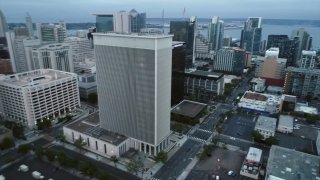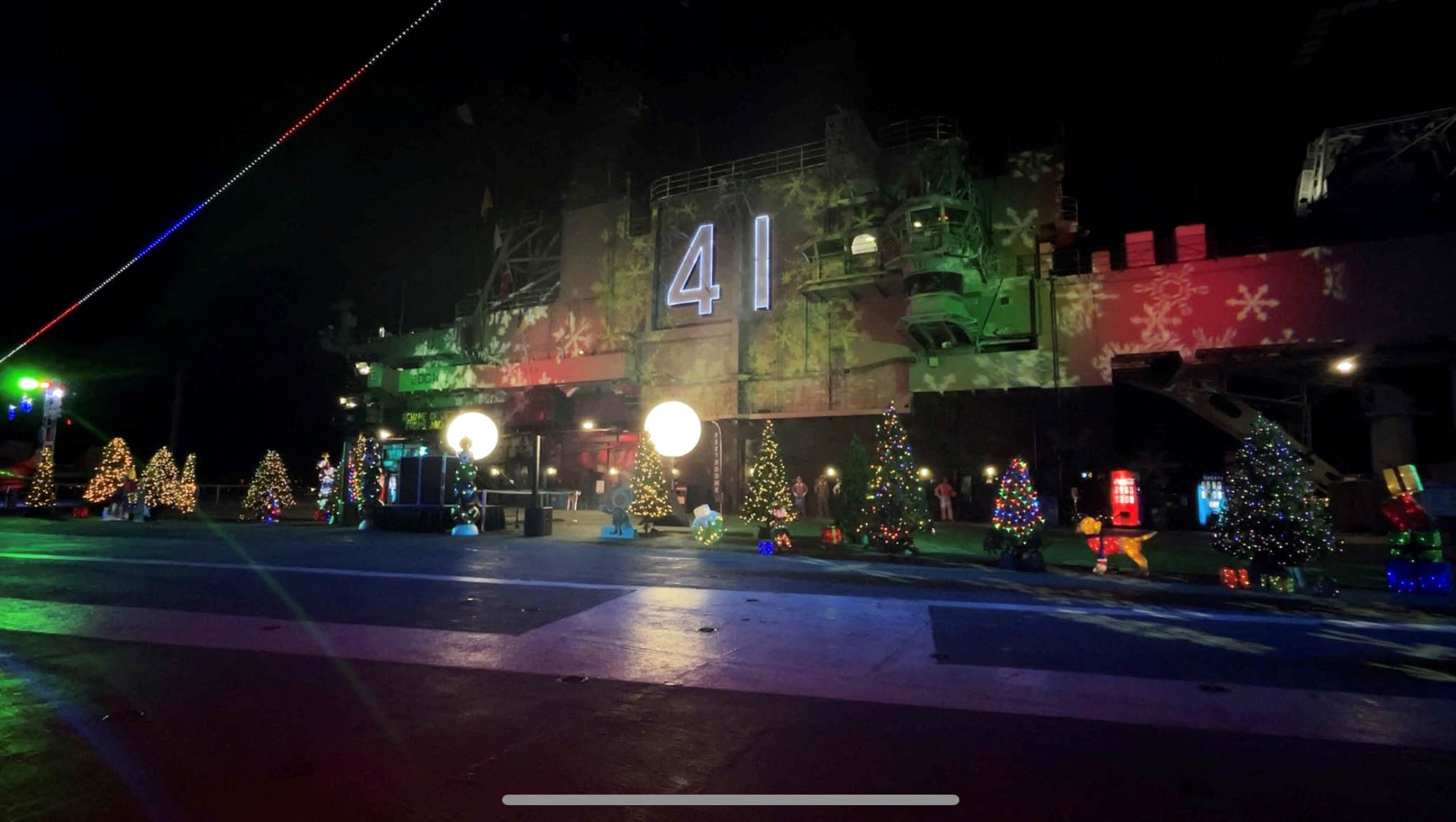
Editor’s Note: NBC 7 is retracting a previously reported story that relied in part on a document that was “fabricated,” according to the law firm that wrote the primary report. NBC 7 chose to retract this story and explain our further reporting for transparency. We apologize for the error and will continue our reporting into who sent NBC 7 a doctored report.
Update: Sept. 21, 2020
To Our Viewers and Community:
Following the retraction of a story involving the 101 Ash Street building, our station conducted an internal investigation to find out what went wrong.
Our investigation revealed missteps in our reporting and in our process for checks and balances. As a result, the two employees who reported the story have been suspended effective immediately and through November 3, to prevent any potential conflicts of interest related to the reporting on candidates running for local office and on matters related to the City. In addition, the employees will not cover issues related to City Hall when they return to the station.
Reporting for our community is a great responsibility, privilege and honor that we take very seriously. Our duty to inform you - our community - is deeply rooted in our more than 50-year legacy of delivering the outstanding journalism that you deserve. Thank you for your continued support. We value your trust and pledge to do better to continue to be the Coverage You Count On.
Local
Thank you,
Todd Mokhtari
President & General Manager, NBC 7
A purported internal memo leaked to NBC 7 that suggested a mayoral candidate may have “misrepresented” details of a controversial city real-estate deal is a forgery - raising more questions about who created it, and the intentions behind it.
NBC 7’s September 3, 2020, article, titled “101 Ash St. Investigation Looked At Whether City Staff, Former Council Member Gloria Misled Public,” cited a footnote in the memo (Footnote 15) that said outside investigators wanted to question Todd Gloria about what he knew about the 101 Ash Street transaction before it was presented to the city council in 2016.
Both the San Diego City Attorney’s office and attorneys with the law firm whose letterhead is on the forged memo have stated that a section reported on by NBC 7 was fabricated. Attorneys for that law firm have sworn, under penalty of perjury, that the footnote was not a part of their work product.
The footnote also stated San Diego City Attorney Mara Elliot’s office had denied outside investigators the opportunity to interview Gloria -- a fact that both the outside investigators and City Attorney have denied.
NBC 7 had received the report from an anonymous source, claiming to be from within the city but we have not been able to confirm the source’s identity or employment. A second, independent source from within the city had mistakenly confirmed the authenticity of the memo with the fabricated footnote but since then, acknowledged there was a miscommunication.
NBC 7 Investigates has since obtained a copy of the verified report and has confirmed that the forged footnote, as well as three other footnotes, do not appear in the original. NBC 7 Investigates found that most of the information inside the report was identical, but footnote 15, as well as other items, did not exist in the authentic Memorandum.
Hilary Nemchik, a spokesperson for City Attorney Mara Elliot, said, “It’s clear the doctored document NBC relied on was fabricated and its outrageous allegations against City Attorney Mara Elliott are false. In fact, Mara Elliott has always been San Diego's taxpayer watchdog on complex city projects, including ones she inherited, such as 101 Ash Street. Whoever falsified the document should be held fully accountable for their blatant attempt to deceive the public and smear the City Attorney and others involved in cleaning up the 101 Ash Street mess.”
Elliott’s spokesperson added, “We have confirmed that Fabricated Footnote 15 did not originate in our Office. To protect the integrity of an investigation, we can’t comment on, even to confirm or deny, a potential or ongoing investigation.”
Todd Gloria has insisted he did not misrepresent any information about the 101 Ash Street transaction to council members.
Nick Serrano, Campaign Manager for Gloria’s bid for mayor, sent us a statement that reads, “Let’s be clear: the fact remains that the September 3, 2020 story on 101 Ash Street was based on a fraudulent report. It is beyond us why NBC 7 is having difficulty admitting that fact. The only appropriate action is to take down the original story and print a retraction.”
NBC 7 is removing the source documentation and photos of the fabricated document reported previously, in an effort to curb any attempts at spreading misinformation.
The following portions are from the original article that are supported by outside documents and did not rely upon the fabricated footnote in the memo sent to NBC 7.
THE APPRAISAL
Newly obtained emails and documents reveal that high-level officials inside the city of San Diego’s Real Estate Assets Department potentially misled council members about the city’s $127 million deal to lease a vacant, asbestos-ridden high-rise in downtown San Diego.
The documents show attorneys with Burke, Williams, and Sorensen, were tasked with investigating what high-level officials from within the city’s Real Estate Assets Department told city council members were the reasons the city chose to lease instead of purchase 101 Ash Street.
Officials in the Real Estate Assets Department had claimed to council members, and the city’s Independent Budget Analyst, that an unspecified “legal threat” had prevented the city from purchasing the building outright, and that they had to move forward with a lease-to-own transaction. (NBC 7 asked the city to provide documentation of the “legal threat” but they said no such documentation exists, that the threat was “verbal” and that they could not provide any further details on what the threat entailed.)
But emails sent by those officials, obtained by NBC 7, suggest the primary reason for the city choosing the lease-to-own option was due to the fact that the city was unable to obtain bond financing given that the building’s appraisal value was $13 million less than what the city agreed to pay.
As a result of what officials disclosed to council members in 2016, the council approved the lease-to-own agreement for the 101 Ash Street building. Taxpayers are now on the hook for $127 million over the next 20 years for a high-rise appraised at just $62 million. In addition, the former Sempra Energy headquarters building requires more than $145 million in repairs and is currently costing taxpayers $18,000 a day in lease costs while it remains empty.
During the course of the past two months, NBC 7 Investigates has reported that city officials ignored warning signs about the true condition of the building and entered into a contract which essentially released the seller from any liability.
The memos and emails obtained by NBC 7 Investigates show that high-ranking officials such as former Deputy Director Ronald Villa, and Director Cybele Thompson were not only aware of the appraisals but failed to inform the city council members of the appraised value of 101 Ash back in 2016.
From even before Sempra vacated its former headquarters located at 101 Ash Street, city real estate officials had their eye on turning the building into San Diego’s “new city hall.”
But not long after entering into negotiations with building owner Sandor Shapery, emails show that city consultants tasked with trying to lessen San Diego’s dependence on expensive leases quickly found that the owner wanted far more than the building’s appraised value.
“Knowing the owner, the price doesn’t surprise me,” wrote city real estate specialist John Casey in a Sept. 4, 2014, email in response to Shapery’s offer which pegged the building at $84 million.
“We could conceivably pay more but I would start the negotiations at the $52 million range.”
After a year of failed negotiations with owner Sandor Shapery, in July 2016 city officials struck a deal. They agreed to buy the building directly for $72.5 million and pay an extra $5 million for tenant improvements. To facilitate the deal, the city used a third-party developer, Cisterra Partners.
The details of the transaction were laid out in two draft staff reports, dated July 12, 2016, and August 29, 2017, both obtained by NBC 7.
In the report, staff celebrated the purchase as a way for the city to save on the cost of ever-increasing downtown office space, as well as an opportunity to move employees into what they called a “Class A” building, replete with “excellent... interior finishes, and upgraded mechanical systems.” Years later, contractors would find the building’s interior was anything but in "excellent condition." Read more about that here.
But the celebration was short-lived.
In an email dated Sept. 1, 2016, former director for Real Estate Assets Ronald Villa informed others that there was a major setback: The appraisal of 101 Ash was far below the $77.5 million purchase price. As a result, the city could not obtain funding to buy the building.
“Based on the recent appraisal that came in for the building it is our belief that we will not be able to achieve approval for a purchase at the $72 million price,” wrote Villa. “I would like to regroup and reexamine the potential for a straight lease with a future purchase option.”
In that same email, Villa acknowledged, “...the fact remains that the general public and policymakers may not be able to get behind paying more for the building than the ‘appraised value.’"
Paying more for the building than what it was appraised for may have looked like a favorable option for taxpayers, given city leaders were wrestling with the fact that the current city hall building was in poor condition, and that the city was in desperate need of more office space for employees.
But another email obtained by NBC 7 reveals that Villa's subordinates may have been trying to inflate the building's value.
“[T]he final appraised value was $67.1 million - [we were] able to get the appraiser up from his original $62 million :),” read an email from the now-former director of San Diego’s Real Estate Assets Department, Cybele Thompson, with an accompanying emoticon.
(Villa and Thompson have since resigned from their positions over the fallout from the 101 Ash purchase. Read more about that here.)
The new appraisal was still too low to obtain funding, so Villa and city staffers moved to Plan B.
In a Sept. 7, 2016, email, Villa wrote that “purchase negotiations broke down and we had to revert to our second option.”
That option was the lease-to-own deal that would cost the city, after financing, a total of $127 million without necessary renovations.
But another problem surfaced: the cost to lease the building was too high when looking at comparable lease prices downtown.
In order to get the funding needed to enter into the lease, documents and emails suggest officials in the city’s Real Estate Assets Department needed to try and boost the value of 101 Ash, monetarily and politically.
In terms of monetary actions, during the Sept. 21, 2016, committee meeting Villa and Thompson told city council members that the lease per-square-foot for city-occupied buildings could rise to as much as $4 in the future.
As for the push politically, Villa memorialized it in a Sept. 7, 2016, email asking for employees from the San Diego Fire Department Union, Local 145 employees, as well as the municipal employees union, "to be present [at the committee meeting] to show their support for employees."
When the city’s Real Estate Assets Department pitched the transaction to council members for approval on Sept. 21, 2016, Thompson told former City Council Member Todd Gloria and other committee members that lease rates for downtown office space were expected to rise to as much as $4 per square foot, which justified the $3 per square foot cost of the lease-to-own deal for the Ash Street building.
Thompson did not reveal to council members any information about the building’s appraised value, and challenges with securing bond financing for purchasing the building outright.
“This (is) a lease-to-own (transaction)," Gloria said at the meeting. "Was a straight purchase considered?" he then asked Thompson.
“A direct purchase was deemed not the best option for the city,” Thompson replied.
In response to questions regarding the options before the city, when it came to purchasing the 101 Ash Street building outright versus the lease-to-own option, San Diego City Attorney Mara Elliot’s office acknowledged the purchase option.
“It appears that the City attempted for some time to reach an agreement on the direct purchase of the property from the owner. After those discussions concluded without success, Cisterra was able to secure an agreement with the owner to purchase the property… City Attorney Goldsmith identified risks of an assignment inherent in the terms of Cisterra’s Purchase and Sale Agreement with the owner in a confidential memorandum to the City on the subject. Following unsuccessful efforts by the City to address those risks with Cisterra, the City instead moved forward with a lease-to-purchase agreement.”
In regards to city officials citing a “legal threat” as the reason to pursue the lease-to-own option, the City Attorney's statement reads, “Regarding a legal threat, our Office heard rumors of such, but the rumors have never been confirmed.”
Meanwhile, the fallout inside the city over 101 Ash continues. On Tuesday, Sept.1, 2020, Voice of San Diego was first to report a memo from the city’s Chief Financial Officer stating the city would no longer make its lease payments on the building, given potential violations of state law preventing taxpayer waste.
A spokesman for Mayor Faulconer said, "The Mayor approved moving forward with this agreement after he was presented with the same information as the City Council that it would provide quality workspace for employees and save $44 million by eliminating costly office leases. That’s what the Mayor approved."



